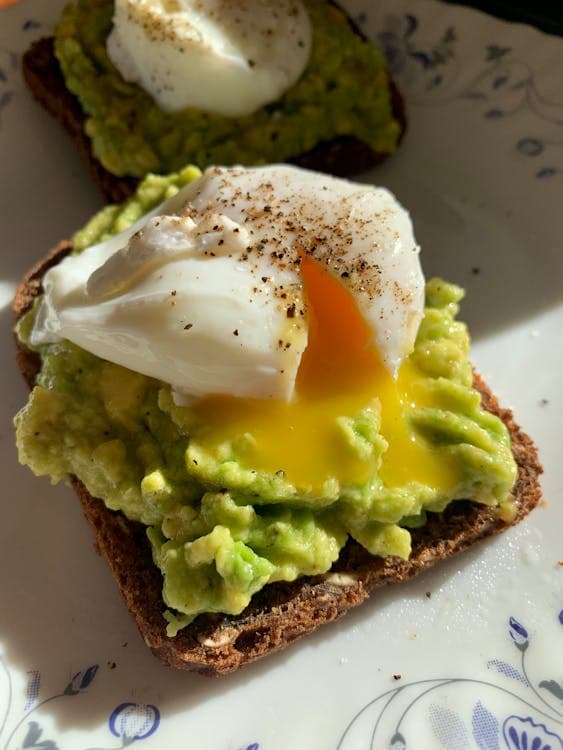excludes or reduces their consumption of meat, fish, and other animal products, and this figure is growing year on year.
Often regarded as a modern day dietary fad followed by teenage girls, the concept of vegetarianism is actually thousands of years old! The ancient Greek philosophers such as Plato and Pythagorus were vegetarian, followed in history by iconic figures such Leonardo da Vinci, Albert Einstein, William Shakespeare, and George Bernard Shaw. More recently Madonna, Robbie Williams, Mike Tyson, Lewis Hamilton, Venus Williams have all ditched meat for a full or partial plant-based diet.
Why do people become vegetarians?
If you’re a carnivore, you may wonder: why become a vegetarian or vegan? There are many different reasons why people become vegetarians, including health, moral, religious, or environmental concerns, as well as food intolerances, various medical conditions, or simply because they don’t like the taste of meat or fish! Despite its excellent protein content and nutritional profile, there have been some health concerns(2,3) regarding the consumption of red or processed meats, which may drive individuals to reduce or avoid meat products. In terms of religious motivation: Hinduism, Jainism and Buddhism are based on non-violence to all living things and promote a vegetarian lifestyle. Morally-motivated vegetarians may object to killing animals for food, or to the cruelty involved in modern day factory farming. Environmentally, there are concerns about the effects on the planet that industrial meat farming has been shown to have (4).
It’s a highly individual choice, but what exactly is a vegetarian diet? What’s the difference between a vegetarian and a vegan? How do vegetarians and vegans get enough protein? Read on to find out more.
What is a vegetarian or vegan diet?
Vegetarians typically avoid eating meat or fish - as Phoebe from the sitcom ‘Friends’ once said, “No food with a face”! However, there are a number of different types of vegetarians, who may choose to eat or use certain animal-derived products depending on their individual needs, beliefs, and preferences. Vegans typically avoid all animal products, but again, there are also variations within this diet too(5):
According to the various dietary choices the individual makes, the effect on nutrient intake, especially protein, can vary dramatically. Protein is an extremely important nutrient, so it's important to ensure that we consume adequate amounts. Read more aboutthe benefits of proteinin our article.
Let’s find out more about how vegans and vegetarians get their protein.
Can vegetarians and vegans get enough protein?
It’s absolutely possible for both vegetarians and vegans to get enough protein, even if they are athletes or older people with increased needs. To find out more about your individual protein requirements, read our article:How much protein do I need each day?
If you are relying solely or partly on plant proteins, however, you will need to give a little more thought to your diet, as these don’t always contain complete, high quality proteins.
But what do we mean by a ‘complete protein’, or ‘protein quality’?
Proteins are made up of organic compounds called amino acids. The terms ‘protein quality’ and ‘complete protein’ refer to the amino acid profile of the food source. Your body needs around 20 amino acids to meet its protein needs each day. It can synthesise some of these amino acids itself; however, there are nine essential amino acids which must be obtained from your diet each day (6,7). These are:
Animal protein sources typically contain all of these amino acids but some plant-based foods only contain a few, or low amounts, so it’s important to combine a wide variety of different plant protein sources each day. For example, plant proteins from pulses and legumes, like lentils or chickpeas, are frequently low in the sulfur-containing amino acids methionine and cysteine. Likewise, whole grains like wheat and brown rice are low in lysine(8). Therefore it’s good to eat pulses along with whole grains to gain a complete essential amino acid profile.
Another consideration is that plant protein sources may not be as bioavailable as animal-based protein. ‘Bioavailable’ means the amount of a nutrient - in this case protein - which is absorbed and has an active effect within our bodies. Due to the structure of plant proteins and the high concentration of compounds in plants that bind to protein molecules, such as tannins and phytic acid, it can be more difficult for your body to access the proteins from plant foods. This means it’s even more important to ensure a good intake of plant protein sources each day to ensure enough protein is digested.(9,10)
Plant-based meat alternatives
There are many plant-based meat alternatives commercially available for vegans and vegetarians, and these usually offer complete proteins. They are typically made from wheat, pea, or soya protein. They can make life much easier for vegans and vegetarians who don’t have time to calculate protein requirements, and those with increased protein needs such as vegetarian athletes or bodybuilders.(11) However, as with many foods, they have their positives and negatives. There are some concerns over regular consumption of these meat alternatives, as they’re a processed food and some of the poorer quality options contain some flavour enhancers, or higher levels of sodium and carbohydrates. This is a valid concern, but in the same way that meat products can vary in terms of being healthy - e.g. lean organic chicken compared to cheap sausages or bacon - so can vegetarian meat alternatives. Choose options containing a short list of recognisable ingredients, not a long list of ingredients with a host of unrecognisable food additives.
On the plus side, meat alternatives tend to be higher in fibre, have lower levels of saturated fats, no cholesterol, and often have comparable levels of protein to animal sources: good sources can easily deliver up to30g of protein in one meal. They may also contain plant compounds which are thought to offer benefits for health. Overall, good quality meat alternatives can offer a healthier and more environmentally sustainable solution, especially when compared to processed meat options such as burgers, sausages, and bacon(12). They can be a great addition to the vegetarian or vegan diet to add some variety, but shouldn't form the sole source of a vegetarian's protein requirements.
Which vegetarian foods are high in protein?
The great thing about a vegetarian or vegan diet is that there is such a broad range of protein sources to choose from. The following list is not exhaustive, but gives a good overview of the protein foods you can choose from:
Vegetarian animal-based protein sources
Vegetarians may choose to eat some foods from animal sources. These foods are all complete protein sources:
Vegan plant-based protein sources
These are primary sources of vegetarian/vegan protein, but it’s worth remembering that fruits and vegetables also contain some protein too. For example, a medium avocado contains around 4g of protein; one cup of broccoli contains 3.7g of protein, one cup of button mushrooms contains 3.4g of protein, and one cup of guava fruit contains over 4g of protein!
Therefore, by eating a broad variety of plant-based foods you’ll be adding to your overall daily protein intake. It is important to ensure you eat complete protein sources or combine incomplete proteins to form complete proteins every day, ideally in the same meal. Eating high-protein snacks will also help to boost your daily intake.
How to make complete plant protein combinations
The best approach is to eat a broad variety of plant-based protein sources each day. If you are eating a food which you know is an incomplete protein, then make sure you accompany it with an additional plant protein source which will supply the missing amino acids.
The following are examples of meals and snacks which combine incomplete plant proteins to achieve a full amino acid profile(13):
You can boost protein content of vegetarian dishes even more by adding a sprinkle of seeds to salad, pasta or toast; a dollop of soy or dairy yoghurt to soups and curries; a spoonful of nutritional yeast to pasta, soups, or casseroles, or peanut butter to stir fry sauces.
We’ve learned that there are many reasons why people might want to restrict or reduce animal-based protein sources in their diet. If you’re one of them, hopefully this article has informed and reassured you that your daily protein intake need not suffer. If you don’t eat meat or fish and are concerned about getting enough protein, consider subscribing to ahealthy meal prep servicethat offers high protein vegetarian meals to help supplement your diet.
If you enjoyed this article, take a look at these related articles on our blog:




